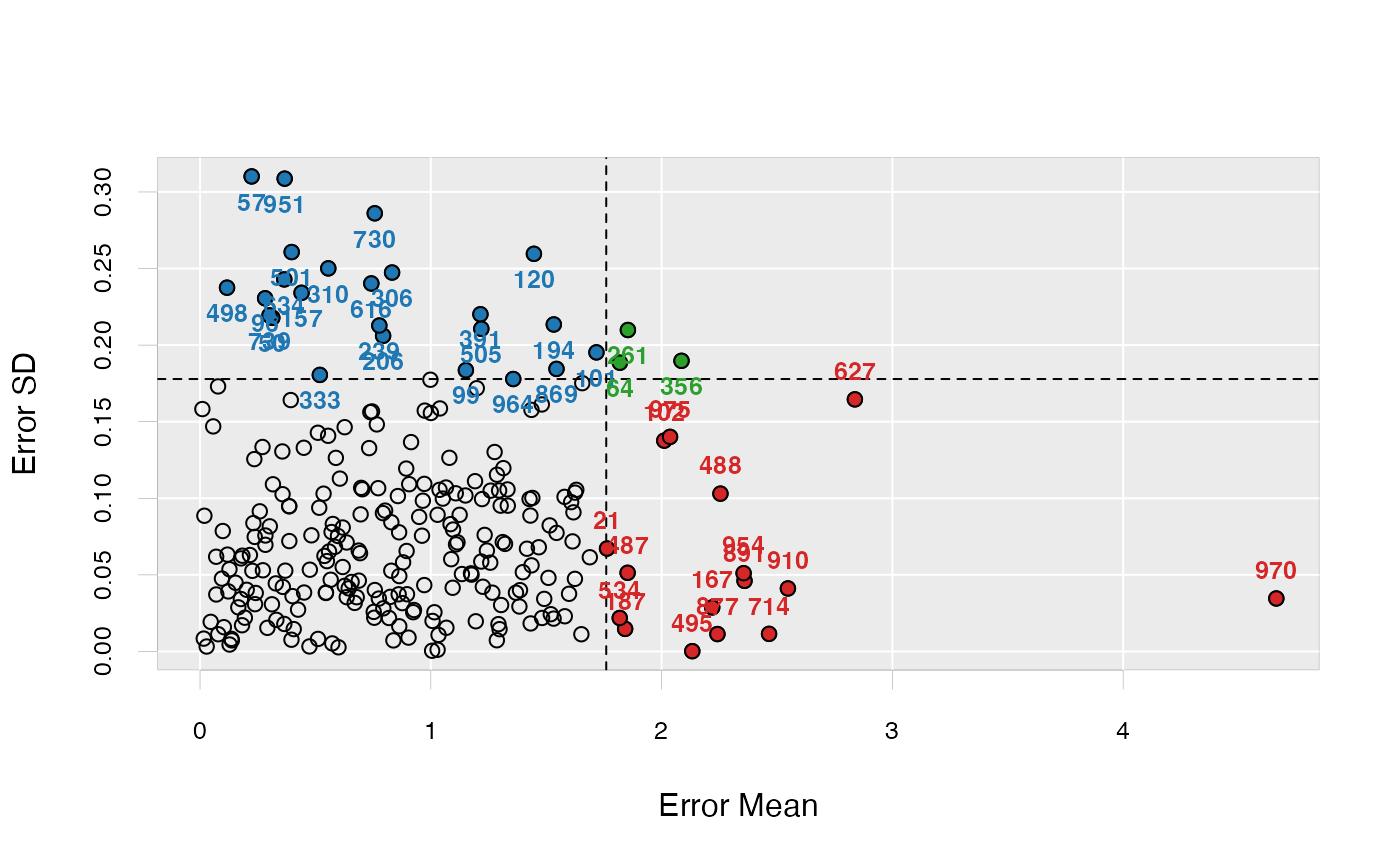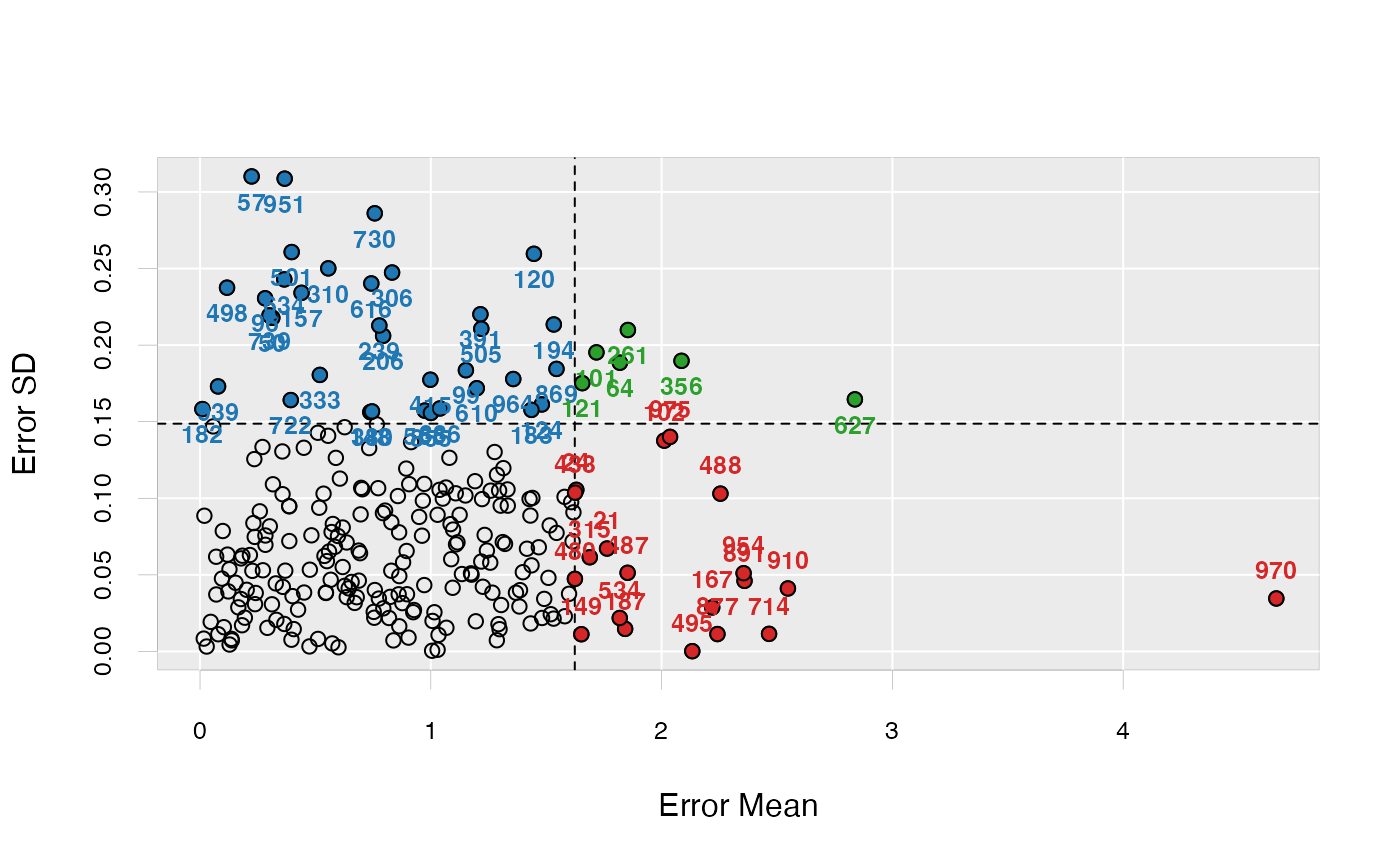Outlier detection with ensemble sparse partial least squares.
Arguments
- x
Predictor matrix.
- y
Response vector.
- maxcomp
Maximum number of components included within each model. If not specified, will use
5by default.- cvfolds
Number of cross-validation folds used in each model for automatic parameter selection, default is
5.- alpha
Parameter (grid) controlling sparsity of the model. If not specified, default is
seq(0.2, 0.8, 0.2).- reptimes
Number of models to build with Monte-Carlo resampling or bootstrapping.
- method
Resampling method.
"mc"(Monte-Carlo resampling) or"boot"(bootstrapping). Default is"mc".- ratio
Sampling ratio used when
method = "mc".- parallel
Integer. Number of CPU cores to use. Default is
1(not parallelized).
Value
A list containing four components:
error.mean- error mean for all samples (absolute value)error.median- error median for all sampleserror.sd- error sd for all samplespredict.error.matrix- the original prediction error matrix
Note
To maximize the probablity that each observation can
be selected in the test set (thus the prediction uncertainty
can be measured), please try setting a large reptimes.
See also
See enspls.fs for measuring feature importance
with ensemble sparse partial least squares regressions.
See enspls.fit for fitting ensemble sparse
partial least squares regression models.
Author
Nan Xiao <https://nanx.me>


